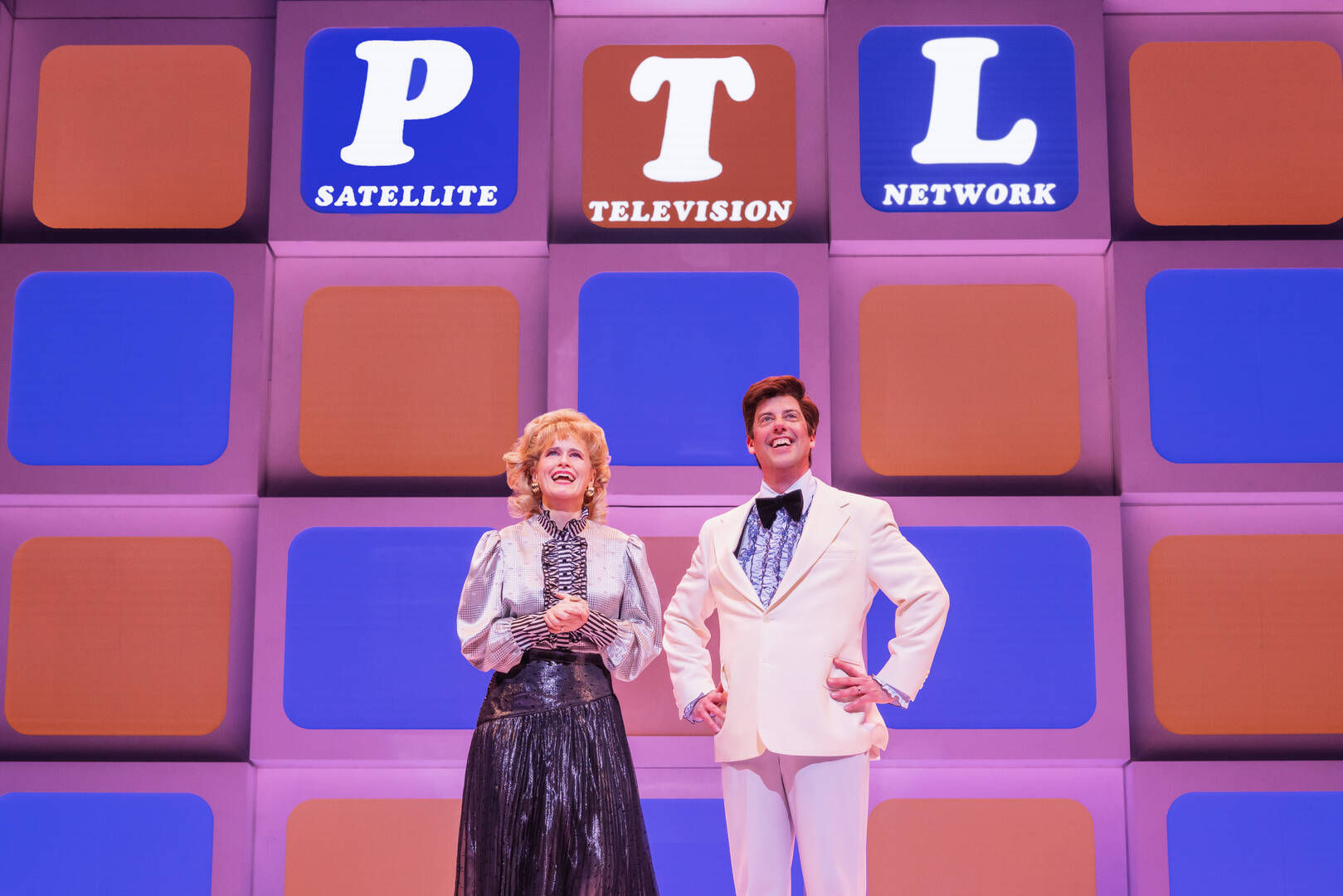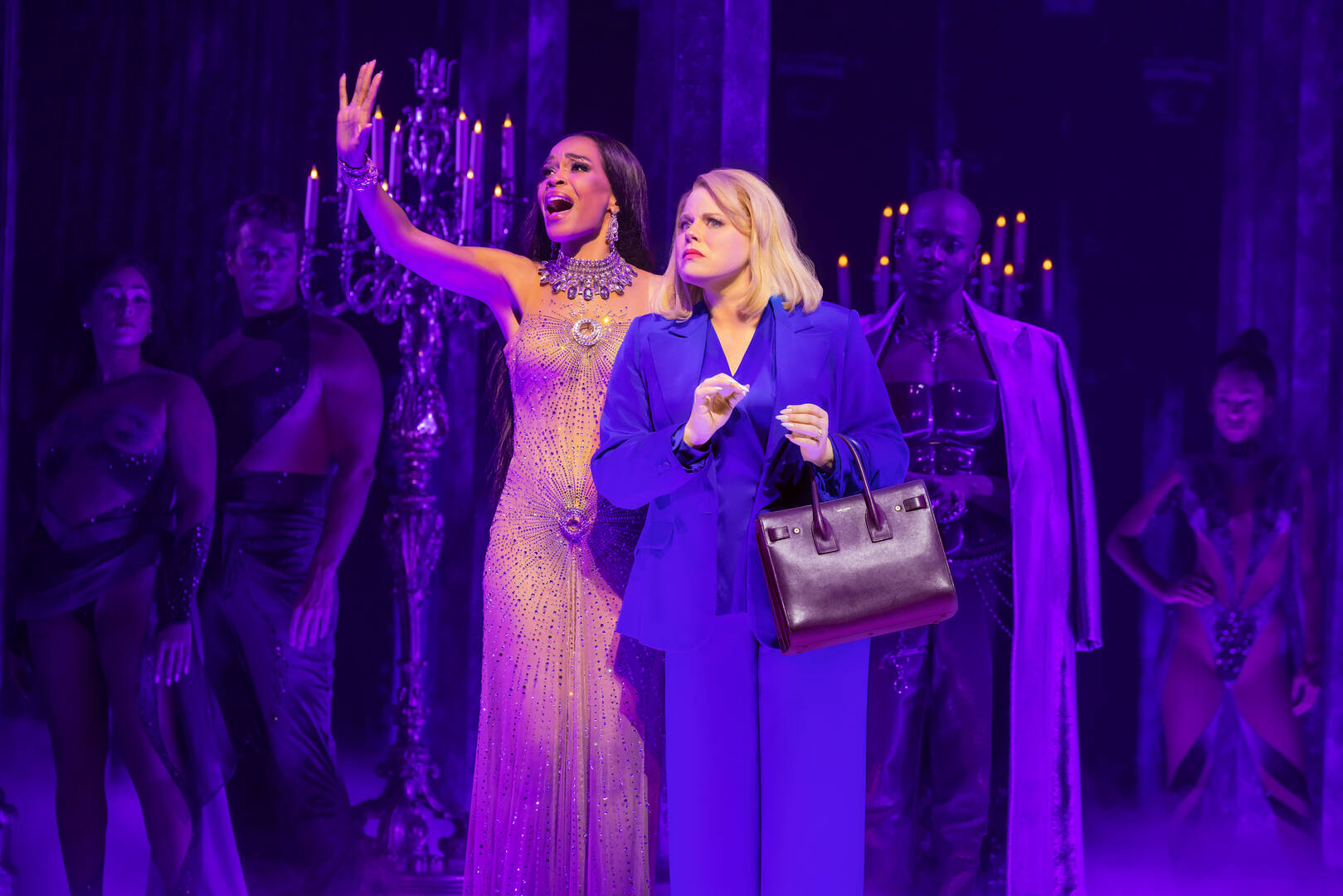In our purportedly youth-obsessed culture, the Broadway musical offers a kind of counter-balance. It is still a place where not only many of the headlining stars but audiences as well tend toward middle age and beyond, with some notable exceptions (“Six,” “& Juliet”).
Age and its relationship to stardom, particularly as this disproportionately affects women, is also the animating subject of many musicals, as it is, more or less, in three now currently running on Broadway. There is “Sunset Boulevard,” based on Billy Wilder’s iconic 1950 film about a silent movie star’s desperate, deluded attempts to return to her former glory; “Tammy Faye,” about the 1980s-era televangelist who had a tumultuous second act as a sort of gay icon; and “Death Becomes Her,” an adaptation of the outrageous 1992 sci-fi comedy film about two rival divas who take extreme measures to preserve themselves.

“Tammy Faye” is the odd one out here, admittedly, as its focus is more on the world its title character came from—late-20th-century Christian televangelism, which a stiffly pompadoured Billy Graham calls “the electric church”—than on her struggles with self-image and fame. The musical does not so much follow Tammy Faye Bakker’s story as check in with her at key junctures along a somewhat frantic timeline, as she defies many of her male counterparts on points of decorum, traditional injunctions against females in the pulpit and, finally, gay rights, conducting a compassionate interview with a fellow pastor living with H.I.V./AIDS.
This relative liberalism, according to the book writer James Graham’s glib narrative, is what puts her and her husband, Jim Bakker, in the cross-hairs of rival preachers, especially stuffy Jerry Falwell (Michael Cerveris), who in turn engineers Bakker’s downfall. Falwell and his evangelical peers are also seen making a momentous alliance with the Reagan-era conservative movement, a turn which almost seems quaint given where our nation’s politics have gone since.
The director Rupert Goold gives the whole thing the feel of a hard-sell live infomercial, though what it’s selling, and to whom, remains unclear. But the real problem with “Tammy Faye” is its maddening incuriosity about its title subject, who gets a few big-note Elton John songs to sing but to little effect. In the role, Katie Brayben is competent but remote. Alas for her and the hard-working cast, her mascara will have a longer run than the poorly reviewed show, which has already announced a closing date of Dec. 8.
“Sunset Boulevard,” by contrast, puts the subject of aging and stardom at center stage, not in the world of televangelism but in the realm of our culture’s original screen mythology, the movies. Screens also dominate the musical’s stunning new staging, with live video of much of the onstage action expertly shot and projected behind the actors, and essentially providing the show’s scenic design, as there is not much else in the way of scenery or costumes in director Jamie Lloyd’s self-consciously stark production.
This bare, monochrome style puts exquisite pressure on the show’s performers to create a non-literal world of Hollywood ambition and cutthroat competition, and they absolutely deliver. Barefoot throughout and clad in nought but a black slip dress, Nicole Scherzinger, a former member of the early 2000s pop band Pussycat Dolls, makes a mesmerizingly self-possessed Norma Desmond, the aging star in whose web a cynical young screenwriter, Joe Gillis (a chilling Tom Francis), becomes entangled.
Scherzinger also gets some of the show’s best tunes, in a score by Andrew Lloyd Webber I’ve always thought was underrated. The “Cats” composer has never been a favorite of mine, but in “Sunset Boulevard” he convincingly conjures an anguished, string-heavy mid-century sound not far from that of the original film’s score by Franz Waxman. While many of my critical colleagues have turned up their noses at what they see as this new production’s gimmicky excesses, in service of a show they never much liked anyway, I found this new production a bracing new take on a text I admire, similar to the famously stripped-down John Doyle revival of “Sweeney Todd” in 2005. And “Sunset’s” thrilling second act opener, live-captured on the street outside the St. James Theatre, is alone worth the price of admission.

Similarly, “Death Becomes Her” is a happy return to a property I remember fondly, if a tad guiltily. Robert Zemeckis’s original film, in which Meryl Streep and Goldie Hawn battled like garish zombies over a milquetoast Bruce Willis, is a hilariously mean, intentionally gross fable about the quest for eternal youth taken to an illogical extreme. The new musical, with a book by Marco Pennette and songs by Julia Mattison and Noel Carey, is as good an adaptation of that material as might be hoped for, preserving the film’s camp-horror vibe and cleverly approximating its body-mangling CGI effects with theatrical sleight of hand courtesy of its director/choreographer, Christopher Gattelli, and the illusionist Tim Clothier.
In the lead roles of Madeleine, a narcissistic actress, and Helen, an insecure writer, who both ingest a life-defying elixir and end up eternally yoked together despite their rivalry, Megan Hilty and Jennifer Simard are giving the kind of deep-dish diva turns that Broadway legends are made of—a feat no less impressive for its self-conscious, even pandering, aspect. From an early production number in which Madeleine thanks her gay fans for sustaining her career to a closing in which these two abruptly shut down a pat happy ending to celebrate their defiant sisterhood, “Death Becomes Her” knows exactly who its audience is and what we came for: fabulous, funny women of a certain age, killing it in musical roles shaped expressly to show off their glamor, their wit and their high notes. By my lights, this is not everything a Broadway show can or should aspire to do. But it’s a pretty ageless formula.








